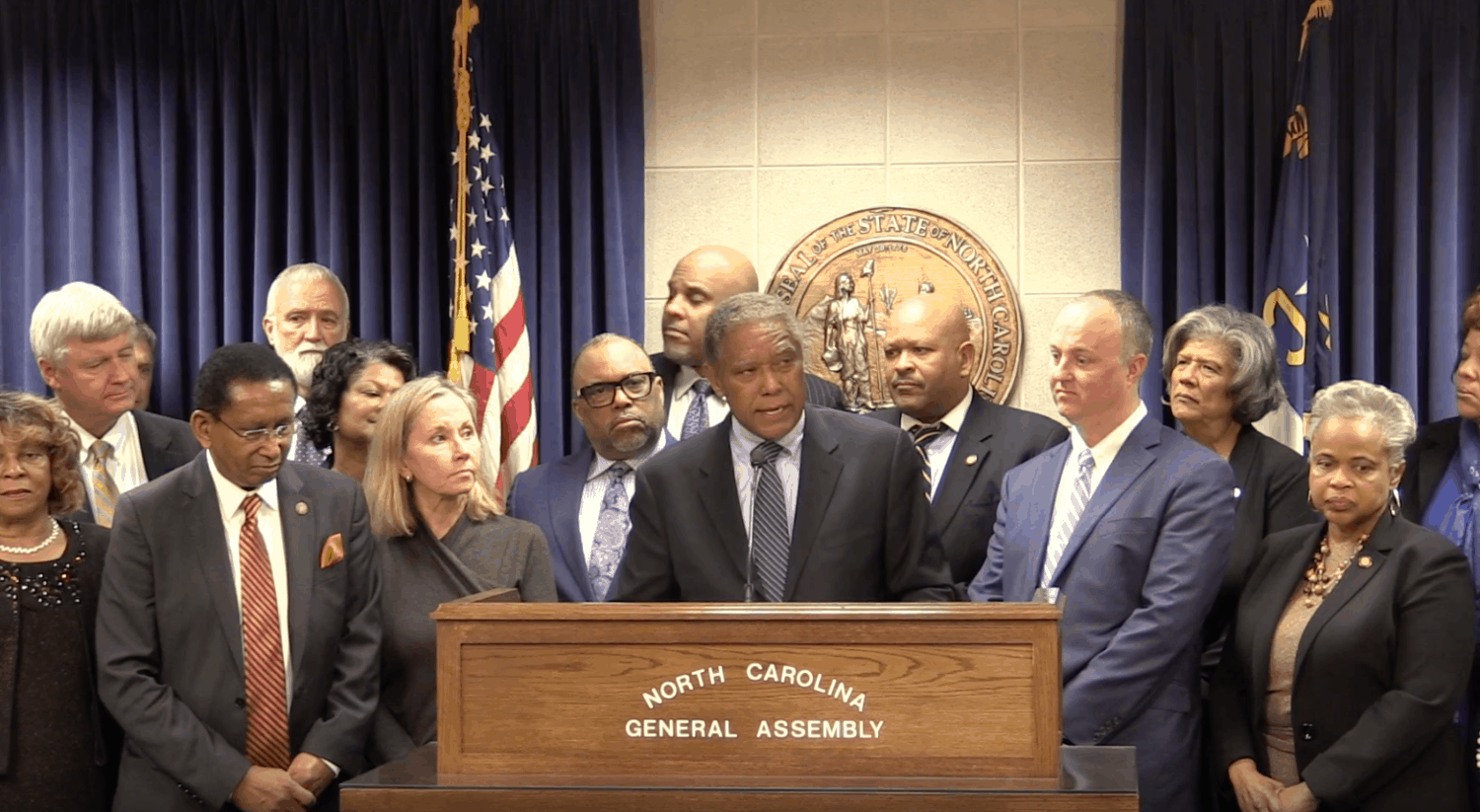During the first official day of the 2017 legislative session, multiple education-related bills were filed, and House and Senate Democratic leaders explained education initiatives they plan to push in the coming months.
Bills in both the House and Senate were filed to establish a task force that would study changing the education funding formula. If changed, the state could move from a resource allocation model, where allotments are sorted out like line items in a budget, to a weighted student formula, where the money would be tied to individual students and their needs. You can read more on the details of the conversation surrounding that change here.
A different bill filed in the House addresses classroom size limitations — an issue brought up in the General Assembly’s surprise special session at the end of last year. The bill would essentially give some wiggle room to schools on how they fund teaching positions. The 2016-17 classroom size requirements caused staffing issues and left many schools wondering how they would pay for teaching positions for non-academic subjects like physical education and art.
Those budget requirements were:
Kindergarten: one teacher per 18 students
First grade: one teacher per 16 students
Second grade: one teacher per 17 students
Third grade: one teacher per 17 students
This legislation would allow the maximum average classroom size for K-3 to exceed the teacher to student ratios by three students, and the maximum individual class size for K-3 by six students.
Sen. Dan Blue, D-Wake, the Senate minority leader, laid out the Democratic party’s vision and its priorities for the session in addressing the state’s problems. You can see his comments and the full press conference at the bottom of this article.
“(We have) a public education system that is struggling to meet the needs of all of our children,” Blue said.
Blue expressed the importance of teacher and administrative pay increases, textbook funding, and a “renewed investment in our public education system.”
“Until our public schools are fully funded and our principals and teachers have every resource they need to help their students succeed, then we cannot afford to divert public tax dollars to private education,” Blue said. “We’re moving in the wrong direction in public education spending.”
While listing specific actions the Democrats want to see taken, House minority leader Sen. Darren Jackson, D-Wake, said teacher pay, at 41st in the nation, should be addressed.
“That’s just not good enough,” Jackson said. “Too many good teachers are leaving the classroom and state for better pay. We need to take a hard look at state revenue this coming session and pass a plan that will offer a meaningful pay raise and make us competitive with other states.”
When EducationNC asked what specific education initiatives Democrats plan to rally behind, Blue said, “They’re familiar ones.” He pointed again to textbook funding and the digital needs of classrooms in both rural and urban settings.
“There shouldn’t be a waiting list for N.C. Pre-K,” added Sen. Terry Van Duyn, D-Buncombe.
Sen. Floyd McKissick, D-Durham, jumped in as well, adding that principal pay shouldn’t be overlooked in the conversation of educator compensation.
“If you want good, effective administrators in your public schools, to manage and operate them and supervise them, you can’t be at the bottom of the pay scale in this country and expect to attract or keep that kind of talent,” McKissick said.
North Carolina’s principal compensation is 50th in the country (including Washington, D.C.) and the way the state pays administrators has issues beyond the low ranking. Read more about that here.
Sen. Mike Woodard, D-Caswell, stressed acting on the classroom size limitation issue addressed in the bill mentioned earlier, saying he has heard from superintendents and principals in his district who have run into staffing issues.
Rep. Amos Quick, D-Guilford, added that there are other staff members supporting children who need better compensation, like bus drivers and cafeteria workers. Quick said there are infrastructural issues across the state as well.
“In every county in this state there are children who are in buildings that are too hot in the summer, too cold in the winter, and have leaks in their roofs, and that has to be addressed as well,” Quick said.
Due to federal legislation called the Every Student Succeeds Act (ESSA), there are new requirements for the state’s accountability system. Rep. Graig Meyer, D-Durham, mentioned after the press conference that the current A-F grading system, which doesn’t meet those requirements, will need to be looked at this session.
Below is the press conference that Democratic leaders in both chambers held Wednesday. The video has been edited to only include education-related comments.



